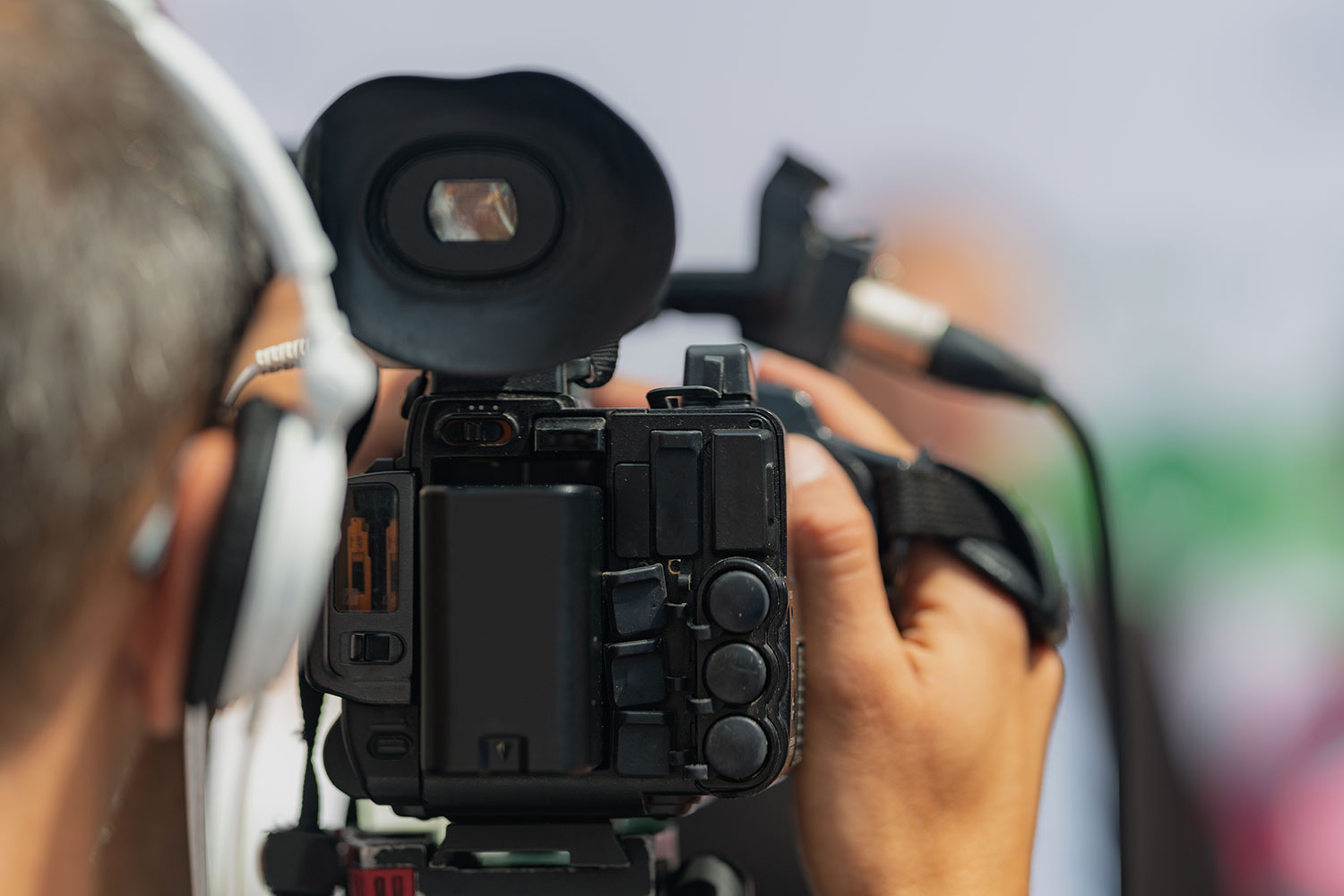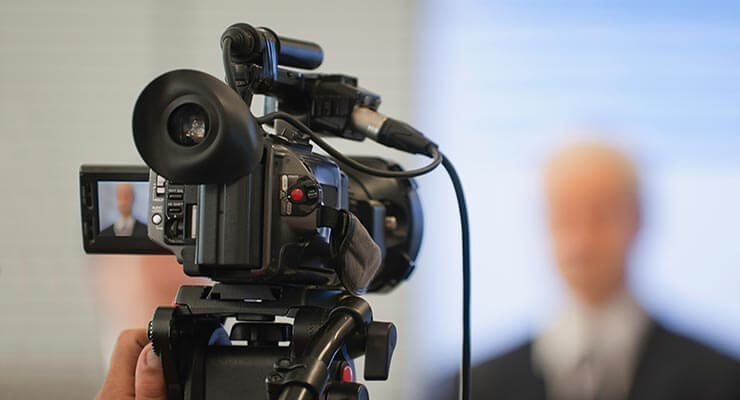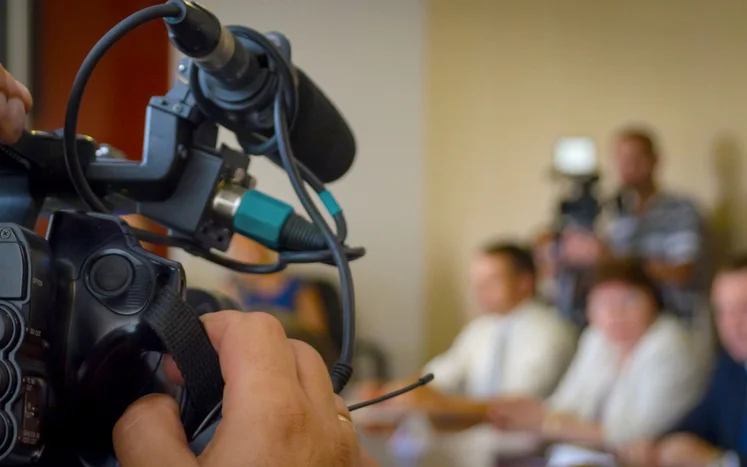The Duty of Legal Videography in Depositions and Tests
Legal videography has emerged as a vital tool in both depositions and trials, giving a multifaceted technique to documenting witness statements. By catching not just the spoken word but likewise the nuances of non-verbal communication, this tool boosts the reputation of testimonies and protects crucial evidence for future process (legal videography). As attorneys increasingly acknowledge its worth, it motivates a much deeper assessment of exactly how these visual records can affect juror assumptions and test outcomes. What implications might these growths hold for the future of lawful practice?

Importance of Lawful Videography
Legal videography plays a crucial function in the documentation and discussion of depositions and tests. This specialized area combines technical skills with lawful expertise to create a dependable record of proceedings that can dramatically affect situation results. The visual facet of legal videography boosts the understanding of witness statement, permitting jurors and judges to observe not just the spoken words however also the demeanor, feelings, and body language of the witnesses.
Furthermore, legal videography provides an objective account of events, minimizing the potential for false impression that can accompany composed records alone. This aesthetic documents offers as an important device during test presentations, facilitating a clearer and more convincing narrative for both plaintiffs and accuseds. Moreover, the capacity to replay video segments during court process enables lawful groups to stress bottom lines, reinforcing their disagreements successfully.
The value of legal videography extends beyond the court; it additionally plays a vital role in preserving proof for future referral, whether for allures or additional lawsuit. Its assimilation right into the legal process is vital for ensuring a reasonable and accurate representation of the truths, ultimately adding to the quest of justice.

Process of Legal Videography
While catching the nuances of depositions and trials, the process of lawful videography entails several important actions that ensure top notch, exact recordings. An expert lawful videographer prepares by reviewing the situation products and comprehending the certain requirements of the deposition or trial. This prep work consists of familiarizing themselves with the participants and the context, which helps in capturing relevant information.
On the day of the recording, the videographer establishes the needed equipment, which typically consists of high-definition electronic cameras, microphones, and appropriate illumination. Guaranteeing optimum angles and audio quality is crucial, as it straight influences the efficiency of the recording. The videographer interacts with attorneys and individuals to establish protocols, making certain that every person understands the recording procedure.
During the deposition or trial, the videographer carefully videotapes the procedures, paying close focus to both spoken and non-verbal hints. This consists of catching the disposition and reactions of witnesses and lawyers. After the session concludes, the videographer may edit the video footage for quality and compliance with legal criteria, generating an end product that properly mirrors the procedures for future reference and use in legal contexts.
Benefits in Depositions
The consolidation of videography in depositions provides many benefits that boost the total process of gathering evidence. One main benefit is the capacity to catch witness testimonies with aesthetic and auditory integrity, providing a much more exact depiction of the witness's behavior, tone, and body language. This multidimensional technique permits attorneys and juries to examine reliability better than traditional written records alone.
In addition, videographed depositions act as an effective device for maintaining testament. Must a witness come to be not available for trial, their taped deposition can be played in court, making sure see page that their proof continues to be obtainable and relevant. This facet dramatically decreases the threat of losing crucial info that can affect instance results.

Lastly, videography improves the general professionalism of the deposition process, instilling confidence in clients relating to the thoroughness of their lawful depiction (legal videography). By leveraging modern technology, attorneys can substantially enhance the efficiency of depositions
Influence On Tests
In several trials, the integration of videography can considerably influence the presentation of evidence and the jury's perception. Lawful videography catches witness testimonies and crucial evidence in a dynamic layout, permitting jurors to engage with the material on multiple degrees. This aesthetic element improves the storytelling aspect of a trial, giving context and psychological resonance that standard text-based evidence might do not have.
In addition, video recordings can work as effective devices for impeachment throughout interrogation. When inconsistencies develop in between a witness's prior declarations and their court room testament, video clip proof offers an objective referral that can persuade jurors' viewpoints. This immediacy and clarity can boost the integrity of a celebration's narrative while simultaneously threatening opposing disagreements.

Future Trends in Legal Videography
As we look towards the future of lawful videography, a number of emerging trends guarantee to reshape its role within the court room. One significant pattern is the integration of expert system (AI) in video evaluation and modifying. AI can enhance the procedure of determining key minutes in taped depositions, allowing lawyers to promptly access relevant web content, consequently improving efficiency in case prep work.
Additionally, the surge of digital truth (VR) and enhanced reality (AR) innovations is expected to change just how jurors experience proof. legal videography. By immersing jurors in a simulated environment, these modern technologies can give an extra extensive understanding of complicated situations, resulting in more enlightened considerations
Additionally, the boosting demand for remote depositions, sped up by the COVID-19 pandemic, will likely continue. Legal videographers will require to adjust to brand-new software program and systems to guarantee top notch recordings in online setups.
Lastly, the expanding emphasis on data security will certainly necessitate more stringent procedures for storing and sharing video clip evidence. As the lawful landscape develops, legal videographers have to stay abreast of these trends to maintain their importance and efficiency in the judicial process.
Verdict
In recap, legal videography serves an essential feature in the why not check here judicial process, enhancing the stability of depositions and trials. As technology proceeds to develop, lawful videography is positioned to more transform its duty within the legal landscape.